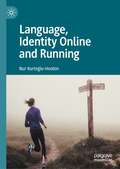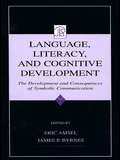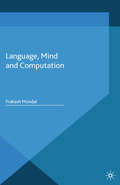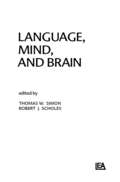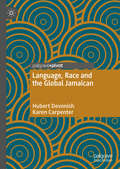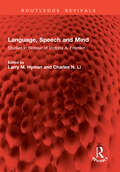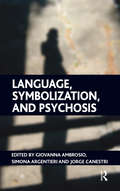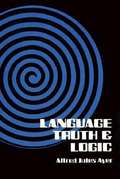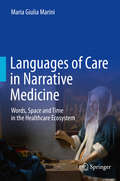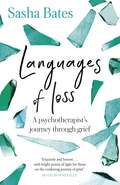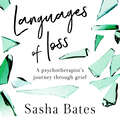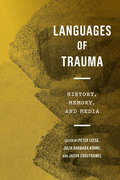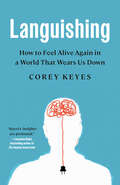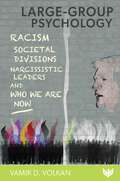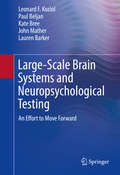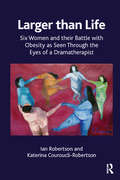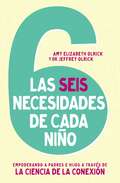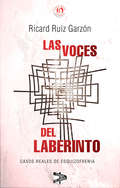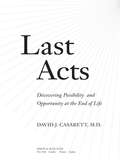- Table View
- List View
Language, Identity Online and Running
by Nur Kurtoğlu-HootonThis book focuses on language and identity online within the context of running from an interdisciplinary perspective. It brings together digital ethnography, existential phenomenology, interpretative phenomenological analysis and sporting embodiment in the pursuit to explore runners’ lived experiences and identities online. Language, identity and identity online are often studied in broader social contexts such as education, culture and politics, and running is intimately related to key issues in contemporary society, such as health and exercise, sport and nationalism, embracing a variety of discourse types and having implications more generally for our identity as human beings. The evolving online media through which people make sense of who they are and which groups they belong to are enabling new ways of realising identities and relationships. This book will be of interest to applied linguists, discourse analysts, as well as those interested in sports, sports psychology, and identity enactment.
Language, Literacy, and Cognitive Development: The Development and Consequences of Symbolic Communication (Jean Piaget Symposia Series)
by Eric Amsel James P. ByrnesLanguage, Literacy, and Cognitive Development addresses the impact of language and literacy on cognitive development. Top researchers examine the cognitive significance of the growth in children's ability to express themselves symbolically, whether that involves communicating linguistically, mathematically, logically, or through some other symbol system expressed in speech, gesture, notations, or some other means. The book contributes to refining and answering questions regarding the nature, origin, and development of symbolic communication in all its forms, and their consequences for the cognitive development of the younger child at home and the older child at school.
Language, Memory, and Thought
by John R. AndersonPublished in 1976, Language, Memory, and thought is a valuable contribution to the field of Cognitive Psychology. This book presents a theory about human cognitive functioning, a set of experiments testing that theory, and a review of some of the literature relevant to the theory. The theory is embodied in a computer simulation model called ACT.
Language, Mind and Computation
by Prakash MondalThis book explores how and in what ways the relationship between language, mind and computation can be conceived of, given that a number of foundational assumptions about this relationship remain unacknowledged in mainstream linguistic theory, yet continue to be the basis of theoretical developments and empirical advances.
Language, Mind, and Brain
by Thomas W. Simon and Robert J. ScholesThe chapters in this volume are extended versions of material first presented at the National Interdisciplinary Symposium on Language, Mind, and Brain held April 6-9, 1978, in Gainesville, Florida. Importantly for interdisciplinary goals, the papers contained in this volume are quite “ available” ; that is, papers by philosophers can easily be read and understood by linguists and psychologists; the ideas of the linguists are readily comprehensible to any educated reader; the psychologists and neurologically oriented writers are clear and nderstandable. It is, then, a volume that cuts, not so much across disciplines, but through them. First published in 1982. Routledge is an imprint of Taylor & Francis, an informa company.
Language, Race and the Global Jamaican
by Karen Carpenter Hubert DevonishThis book examines the racial and socio-linguistic dynamics of Jamaica, a majority black nation where the dominant ideology continues to look to white countries as models, yet which continues to defy the odds. The authors trace the history of how a nation of less than three million people has come to be at the centre of cultural, racial and linguistic influence globally; producing a culture than has transformed the way that the world listens to music, and a dialect that has formed the lingua franca for a generation of young people. The book will be of particular interest to students and scholars of Caribbean linguistics, Africana studies, diaspora studies, sociology of language and sociolinguistics more broadly.
Language, Sex and Social Structure
by Jodie ClarkThis book offers an innovative way of doing critical discourse analysis that focuses on the performatively produced concepts and social structures that support oppressive attitudes in a community. It draws upon ethnographic data from a women's field hockey club to examine players' homophobic attitudes towards lesbians on the team.
Language, Speech and Mind: Studies in Honour of Victoria A. Fromkin (Routledge Revivals)
by Charles N. Li Larry M. HymanFirst published in 1988, Language, Speech and Mind consists of 18 specially invited contributions to mark Professor Fromkin’s 65th birthday in 1988. It reflects her very special interdisciplinary interests and flair, thereby celebrating her own important contributions in the areas of phonetics, phonology, neurolinguistics, psycholinguistics, and the philosophy of science.
Language, Symbolization, and Psychosis: Essays In Honour Of Jacqueline Amati Mehler
by Jorge Canestri Giovanna Ambrosio Simona ArgentieriIn this book, the authors compare different psychoanalytic thinking and models – all of a rigorously Freudian stamp – on three concepts of great theoretical and clinical importance: language, symbolization, and psychosis.
Language, Truth, and Logic (Second Edition)
by Alfred Jules AyerMr. Ayer sets up specific tests by which you can easily evaluate statements of ideas. You will also learn how to distinguish ideas that cannot be verified by experience--those expressing religious, moral, or aesthetic experience, those expounding theological or metaphysical doctrine, and those dealing with a priori truth. The basic thesis of this work is that philosophy should not squander its energies upon the unknowable, but should perform its proper function in criticism and analysis
Language, Youth and Identity in the 21st Century
by Jacomine Nortier Bente A. SvendsenThe language of young people is central in sociolinguistic research, as it is seen to be innovative and a primary source of knowledge about linguistic change and the role of language. This volume brings together a team of leading scholars to explore and compare linguistic practices of young people in multilingual urban spaces, with analyses ranging from grammar to ideology. It includes fascinating examples from cities in Europe, Africa, Canada and the US to demonstrate how young people express their identities through language, for example in hip-hop lyrics and new social media. This is the first book to cover the topic from a globally diverse perspective, and it investigates how linguistic practices across different communities intersect with age, ethnicity, gender and class. In doing so it shows commonalities and differences in how young people experience, act and relate to the contemporary social, cultural and linguistic complexity of the twenty-first century.
Languages of Care in Narrative Medicine: Words, Space and Time in the Healthcare Ecosystem
by Maria Giulia MariniThis book explains how narrative medicine can improve evidence based medicine (EBM), making it more effective and efficient, giving patients better quality of life and offering more satisfaction to all health care providers. It discusses not only the disease experienced by the person who is ill, but also focuses on the context and the culture, and investigates how narrative medicine can make other disciplines around the globe more applicable, less manipulative, and more “scientific”. Only by integrating the narrative aspects, can EBM become more effective and efficient, with fewer uncured patients, more satisfied patients with a better quality of life, and satisfaction for all health care providers. Every chapter is divided into two main sections: the first presents the latest research in the field, with comments and interviews with experts, while the second section provides a list of practical exercises and tasks. The book is intended for anyone with an interest in caring for and curing patients: all care providers of care, physicians, general practitioners, specialists nurses, psychotherapists, counselors, social workers, providers of aid, healthcare managers, scientific societies, academics and researchers.
Languages of Loss: A psychotherapist's journey through grief
by Sasha Bates'This is the most startlingly honest book about grief I have ever read. Its immediacy hits you on the first page and takes you on an unforgettable journey. No one has set out so clearly the stages we go through as we try to come to terms with facing the enormity of death.' - Dame Penelope Wilton, DBE'Sasha writes exquisitely and honestly, the sheer rawness of what she has gone through and is still going through, sitting in balance with the calm and clear-sighted objectivity of the therapist, who is also her.' - Hugh BonnevilleOne person, two perspectives on grief. Plunged unexpectedly into widowhood at just 49 years old, psychotherapist Sasha Bates describes in searing honesty the agonisingly raw feelings unleashed by the loss of her husband and best friend, Bill. At the same time, she attempts to keep her therapist hat in place and create some perspective from psycho-analytic theory. From the depths of her confusion she gropes for ways to manage and bear the pain - by looking back at all that she has learnt from psychotherapeutic research, and from accepted grief theories, to help her make sense of her altered reality.Languages of Loss starts a necessary and overdue conversation about death and loss. It breaks down taboos and tries to find humour and light amidst the depressing, bewildering reality. It is an essential companion to help support readers through the agony of those early months, giving permission for all the feelings, and offering various methods of living with them.This book's overriding message is that everyone's experience of grief is different, but knowing more about the theory, and learning a new vocabulary, while not necessarily easing the grief, can help you feel less alone, and at some point enable you to reflect back and see how far you have come.'This is a useful as well as a moving book. The writing is energetic, down-to-earth and bracingly honest, and many readers will feel consoled and enlightened by Bates's take on her experience.' - Cathy Rentzenbrink,The Times'Bates's skill as a psychotherapist is married to her deft ability to use language and metaphor to create this vital treatise on loss. As much as Languages of Loss is an essential text on grief, it is also a story of love.' - Sunday Business Post Review'This book will give anyone grieving the death of their partner an insight into their experience, and help those around them understand the difficult and painful process of grief.' - Julia Samuel, author of This Too Shall Pass and Grief Works
Languages of Loss: A psychotherapist's journey through grief (Languages of Loss)
by Sasha Bates'This is the most startlingly honest book about grief I have ever read. Its immediacy hits you on the first page and takes you on an unforgettable journey. No one has set out so clearly the stages we go through as we try to come to terms with facing the enormity of death.' - Dame Penelope Wilton, DBE'Sasha writes exquisitely and honestly, the sheer rawness of what she has gone through and is still going through, sitting in balance with the calm and clear-sighted objectivity of the therapist, who is also her.' - Hugh BonnevilleOne person, two perspectives on grief. Plunged unexpectedly into widowhood at just 49 years old, psychotherapist Sasha Bates describes in searing honesty the agonisingly raw feelings unleashed by the loss of her husband and best friend, Bill. At the same time, she attempts to keep her therapist hat in place and create some perspective from psycho-analytic theory. From the depths of her confusion she gropes for ways to manage and bear the pain - by looking back at all that she has learnt from psychotherapeutic research, and from accepted grief theories, to help her make sense of her altered reality.Languages of Loss starts a necessary and overdue conversation about death and loss. It breaks down taboos and tries to find humour and light amidst the depressing, bewildering reality. It is an essential companion to help support readers through the agony of those early months, giving permission for all the feelings, and offering various methods of living with them.This book's overriding message is that everyone's experience of grief is different, but knowing more about the theory, and learning a new vocabulary, while not necessarily easing the grief, can help you feel less alone, and at some point enable you to reflect back and see how far you have come.'This is a useful as well as a moving book. The writing is energetic, down-to-earth and bracingly honest, and many readers will feel consoled and enlightened by Bates's take on her experience.' - Cathy Rentzenbrink, The Times'Bates's skill as a psychotherapist is married to her deft ability to use language and metaphor to create this vital treatise on loss. As much as Languages of Loss is an essential text on grief, it is also a story of love.' - Sunday Business Post Review'This book will give anyone grieving the death of their partner an insight into their experience, and help those around them understand the difficult and painful process of grief.' - Julia Samuel, author of This Too Shall Pass and Grief Works
Languages of Loss: A psychotherapist's journey through grief (Languages of Loss)
by Sasha BatesOne person, two perspectives on grief. Plunged unexpectedly into widowhood at just 49 years old, psychotherapist Sasha Bates describes in searing honesty the agonisingly raw feelings unleashed by the loss of her husband and best friend, Bill. At the same time, she attempts to keep her therapist hat in place and create some perspective from psycho-analytic theory. From the depths of her confusion she gropes for ways to manage and bear the pain - by looking back at all that she has learnt from psychotherapeutic research, and from accepted grief theories, to help her make sense of her altered reality. Languages of Loss starts a necessary and overdue conversation about death and loss. It breaks down taboos and tries to find humour and light amidst the depressing, bewildering reality. It is an essential companion to help support readers through the agony of those early months, giving permission for all the feelings, and offering various methods of living with them.This book's overriding message is that everyone's experience of grief is different, but knowing more about the theory, and learning a new vocabulary, while not necessarily easing the grief, can help you feel less alone, and at some point enable you to reflect back and see how far you have come.(P) 2020 Hodder & Stoughton Ltd
Languages of Trauma: History, Memory, and Media (G - Reference,information And Interdisciplinary Subjects Ser.)
by Peter Leese Jason Crouthamel Julia Barbara KöhneThis volume traces the distinct cultural languages in which individual and collective forms of trauma are expressed in diverse variations, including oral and written narratives, literature, comic strips, photography, theatre, and cinematic images. The central argument is that traumatic memories are frequently beyond the sphere of medical, legal, or state intervention. To address these different, often intertwined modes of language, the contributors provide a variety of disciplinary approaches to foster innovative debates and provoke new insights. Prevailing definitions of trauma can best be understood according to the cultural and historical conditions within which they exist. Languages of Trauma explores what this means in practice by scrutinizing varied historical moments from the First World War onwards and particular cultural contexts from across Europe, the United States, Asia, and Africa – striving to help decolonize the traditional Western-centred history of trauma, dissolving it into multifaceted transnational histories of trauma cultures.
Languishing: How to Feel Alive Again in a World That Wears Us Down
by Corey Keyes&“With his pioneering research, Corey Keyes put languishing on the map. In this powerful book, he brings it to life. Get ready to rethink your understanding of mental health, update your views on happiness, and come closer to realizing your potential.&”—Adam Grant, #1 New York Times bestselling author of Hidden PotentialIf you&’re muddling through the day in a fog, often forgetting why you walked into a room . . . If you feel emotionally flattened, lacking the energy to socialize or feel joy in the small things . . . If you feel an inner void—like something is missing, but you aren&’t sure what . . . Then this book is for you.Languishing—the state of mental weariness that erodes our self-esteem, motivation, and sense of meaning—can be easy to brush off as the new normal, especially since indifference is one of its symptoms. It is not a synonym for depression and its attendant state of prolonged sadness. Languishers are more likely to feel out of control of their lives, uncertain about what they want from the future, and paralyzed when faced with decisions. Left unchecked, languishing not only impedes our daily functioning but is a gateway to serious mental illness and early mortality.Emory University sociologist Corey Keyes has spent his career studying the causes and costs of languishing—the neglected middle child of mental health. Now Keyes has written the first definitive book on the subject, examining the ripple effect of languishing on our lives before deftly diagnosing the larger forces behind its rise: the false promises of the self-help industrial complex, a global moment of intense fear and loss, and a failing healthcare system focused on treating rather than preventing illness.Ultimately, Keyes presents a counterintuitive approach to breaking the cycles keeping us stuck and finding a path to true flourishing. Unlike self-improvement systems offering quick-fix mood boosts, his framework focuses on functioning well: taking simple but powerful steps to hold our emotions loosely, becoming more accepting of ourselves and others, and carving out daily moments for the activities that create cycles of meaning, connection, and personal growth.Languishing is a must-read for anyone tempted to downplay feelings of demotivation and emptiness as they struggle to haul themselves through the day, and for those eager to build a higher tolerance for adversity and the pressures of modern life. We can expand our vocabulary for describing our inner experiences and deepest needs—and, with it, our potential to flourish.
Large-Group Psychology: Racism, Societal Divisions, Narcissistic Leaders and Who We Are Now
by Vamik Volkan2021 Gradiva Award Winner Following the deadly 2017 white supremacist rally in Charlottesville, Virginia, numerous recent, and fatal, attacks on mosques, churches, and synagogues occurring worldwide, and increasing totalitarianism and paranoia spreading through many countries, Dr Vamik Volkan could no longer ignore the urge to write a new book about large-group problems. In many countries, people are asking the metaphorical question "Who are we now?" and coming up with seemingly opposite answers. This book looks into the reasons why this is happening. With a summary of Sigmund Freud's ideas about large groups - which focus on the individual - Dr Volkan builds on this base to explain what large-group psychology is in its own right and applies it to present-day society. How it develops in adulthood, the psychology of decision-making and political leader/follower relationships, political propaganda, and exaggerated narcissism in leaders are all examined. We are all members of at least one large group. Looking into large-group identity provides background data for investigating the spread of racism, authoritarian regimes, malignant political propaganda, wall building, and interferences with democratic processes and human rights issues. Large-Group Psychology: Racism, Societal Divisions, Narcissistic Leaders and Who We Are Now is the perfect book for those questioning what is happening in society today and why.
Large-Scale Brain Systems and Neuropsychological Testing
by Paul Beljan John Mather Leonard F. Koziol Kate Bree Lauren BarkerThis leading-edge volume offers a new framework forneuropsychological testing rooted in the current evidence base on large-scalebrain system interactions. Expert coverage brings traditional discrete areas ofcognitive functioning (e. g. , attention, memory) in line with highly nuancedrelationships between cortical and subcortical processing. The new findingspoint to more accurate and targeted testing, as authors expand on the judiciousaddition of nonstandardized methods to core diagnostic tools and the underusedcapacity of neuropsychological testing to assess social behavior andpersonality. The book's emphasis on cognition in context gives practitioners betterunderstanding of assessment and evaluation, leading to improved diagnosis,treatment, and outcomes for individuals as well as significant improvements inthe field. This innovative reference: Reframes cognitive functioning in light of current data on brain interconnectivity. Critiques current methods of neuropsychological test interpretation. Reviews known, useful interpretive methodologies within a new context. Features instructive case examples emphasizing accurate historical and test data. Revisits the strengths and limitations of the bell curve construct. Examines the interpretive significance of pathognomonic signs. Details strategies for making neuropsychological evaluations more clinically relevant. Large-Scale Brain Systems and NeuropsychologicalTesting combines current findings, clinicalsense, and common sense to ground neuropsychologists, school psychologists,child psychologists, and clinical social workers in the effective assessment ofreal-world functioning.
Larger than Life: Six Women and their Battle with Obesity as seen through the Eyes of a Dramatherapist
by Katerina Couroucli-RobertsonLarger than Life is aimed at anyone interested in obesity and its treatment. It follows a dramatherapy group attended by six women, all struggling with their weight, using vignettes, transcriptions of the sessions attended, and commentary on the progress made by the participants. A final interview concludes each of the women's therapy, where they talk about their experiences within the group, followed by the therapist's summation of their treatment. The book concludes with brief telephone conversations with all six women three years after their treatment ended, giving a clear picture of the value of dramatherapy to the individual. As well as looking at these specific case studies, the authors also discuss the causes and effects of obesity, the dramatherapy group process, and why dramatherapy is an effective means of treating eating disorders. This is a must-read book for anyone interested in the subject of obesity or dramatherapy.
Las 6 necesidades de cada niño: Empoderar a padres e hijos a través de la ciencia de la conexión
by Amy Elizabeth Olrick Jeffrey OlrickComo la mayoría de los padres, Amy y Jeffrey Olrick salieron del hospital con su primer hijo desesperados por saber: «¿Qué hacemos?». Pero años de crianza de tres hijos y el trabajo de Jeffrey como psicólogo infantil los convenció de hacer una pregunta mejor: «¿Cómo debo estar con esta nueva persona?». En una cultura obsesionada con las fórmulas parentales, es fácil pasar por alto el hecho de que la ciencia y la experiencia vivida han demostrado que el desarrollo humano y la prosperidad son una cuestión de relación. Basándose en décadas de investigación psicológica, neurociencia y su propia experiencia como padres y personas de fe, los Olrick presentan seis necesidades relacionales para el crecimiento humano que transformarán la forma en que piensa sobre su hijo y sobre sí mismo. Juntas, las necesidades forman una brújula confiable para guiarlo a usted y a su hijo hacia un camino de propósito y plenitud relacional.Para los padres que se sienten atraídos en cientos de direcciones, mareados por el volumen de estrategias contradictorias y cansados por los programas para padres que complicaron su propia infancia, Las 6 necesidades de cada niño es un mapa de ruta innovadora que integra la ciencia de la conexión con herramientas prácticas. Estará equipado con:• Una mirada profunda a los seis elementos esenciales que su hijo necesita para prosperar• Herramientas para usar cuando se sienta atrapado• El secreto para asegurar la conexión con su hijo• Herramientas de autoevaluación para discernir su estilo de crianza únicoMás que una guía para padres, este libro es su invitación a liberarse del mito de la paternidad perfecta y abrazar el largo viaje de crecimiento de su hijo. Con perspicacia, humor y compasión, llama a los padres a descubrir el poder de estar imperfectamente presentes con sus hijos, desarrollando una capacidad de recuperación mental, emocional y espiritual que los sostendrá durante toda la vida.The 6 Needs of Every ChildLike most parents, Amy and Jeffrey Olrick left the hospital with their first child desperate to know, "What do we do?" But years of parenting three kids and Jeffrey's work as a child psychologist convinced them to ask a better question: "How shall I be with this new person?"In a culture obsessed with parenting formulas, it's easy to miss the fact that science and lived experience have proven that human development and thriving are a matter of relationship. Drawing on decades of psychological research, neuroscience, and their own experience as parents and people of faith, the Olricks present six relational needs for human growth that will transform the way you think about your child--and yourself. Together, the needs form a trustworthy compass to guide you and your child to a path of purpose and relational wholeness.For parents who feel pulled in a hundred directions, dizzied by the volume of clashing strategies, and jaded by the parenting programs that complicated their own childhoods, The 6 Needs of Every Child is a groundbreaking roadmap integrating the science of connection with practical tools.
Las folias del sexo: Ideas y creencias sobre el sistema genital
by Francisco González Crussí«Uno de los mejores escritores médicos de nuestros días.» Booklist «Pocos médicos tienen la fortuna y capacidad de escribir por medio de las lentes del microscopio: vida, dolor, enfermedad, amor y muerte se amplifican, siembran, preguntan. Francisco González Crussí ha tejido numerosos textos Notas de un anatomista, La enfermedad del amor, El rostro y el alma recargándose en sus habilidades como patólogo y en su disección de la(s) vida(s). Sus libros son un dechado de conocimiento. Las folías del sexo no es la excepción. »Folía, explica González Crussí, implica locura y canto; chifladura y baile. De mil formas, gracias a dibujos anatómicos, retratos, xilografías, fuentes, notas, y sobre todo con una virtud escritural que desglosa y expone con elegancia las folías del sexo, el libro depara un ameno paseo aderezado con inmensas dosis de sabiduría e información. Amor, enfermedad y sexo son etiquetas universales, imperecederas. Vivimos y fenecemos con ellas. Francisco explica algunos porqués. El lector encontrará sus porqués en las páginas del libro.» Arnoldo Kraus, médico y escritor «González Crussí sabe demasiado y lo comparte sin jactancia. Sus ensayos combinan datos duros con especulación y severidad con humor; están colmados de sorprendentes anécdotas y son refinados en su lenguaje.» The New York Times Book Review
Las voces del laberinto
by Ricard Ruiz GarzónEste libro da voz a quienes habitualmente no la tienen. A aquellos que, extraviados en el laberinto de la enfermedad mental, sufren el rechazo de una sociedad presuntamente cuerda. Basados en quince testimonios reales sobre el padecimiento de la esquizofrenia, los relatos recogidos en Las voces del laberinto transmiten el dolor, el desconcierto, la impotencia y también la esperanza de quienes buscan una salida a la encrucijada que ofusca su existencia. Más que un tratado de psiquiatría, un ensayo sociológico o un manual de autoayuda, Las voces del laberinto es una aproximación testimonial, una recreación de casos reales que privilegia el punto de vista de los enfermos para romper tópicos, ahuyentar prejuicios y contribuir a la destrucción del estigma que el mal llamado esquizofrénico padece aún en nuestra sociedad.
Lass uns miteinander sprechen: Psychologie der erfolgreichen Gesprächsführung (Psychologie für Studium und Beruf)
by Heidrun Schüler-Lubienetzki Ulf LubienetzkiDurch dieses kompakte Lehrbuch lernen Sie auf unterhaltsame Weise die wichtigste Form menschlicher Kommunikation – das persönliche Gespräch – in seinen wesentlichen Facetten kennen. Es fokussiert sich vorrangig auf die Kommunikation im beruflichen Kontext, doch können die Prinzipien natürlich auch auf andere Lebensbereiche angewendet werden: Lernen Sie, wie wir neben dem gesprochenen Wort auch mit unserem Körper kommunizieren, wie wir Kontakt zu unseren Gesprächspartnern aufbauen und wie wir erreichen, dass andere Menschen Lust und Interesse haben, mit uns zu sprechen.
Last Acts
by David J. CasarettLast Actsdraws on the author's experiences to help terminally ill patients and families make careful decisions about end-of-life care.
